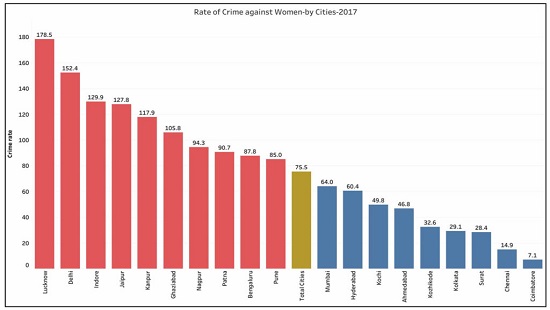
Bengaluru Becomes India’s 3rd Most Violent City After Delhi and Mumbai: NCRB Report
Bengaluru has earned an unwelcome distinction in the Crime in India 2023 report released by the National Crime Records Bureau (NCRB). The city has emerged as the third most violent metro in India, behind only Delhi and Mumbai. While Bengaluru is often called the Silicon Valley of India, the report highlights a growing shadow—an alarming surge in violent crimes.
Rising Numbers in Bengaluru
In 2023, Bengaluru registered 3,528 violent crime cases, a steep rise of nearly 47% compared to 2021. This marks the sharpest increase among Indian metros, even as Delhi and Mumbai continue to record the highest absolute numbers.
For perspective:
- Delhi logged 11,014 cases
- Mumbai recorded 4,750 cases
- Bengaluru stood third with 3,528 cases
- Hyderabad: 1,483 cases
- Chennai: 973 cases
- Kolkata: 919 cases
The NCRB defines violent crime to include murder, rape, kidnapping and abduction, attempt to murder, robbery, dacoity, arson, and rioting—offences collectively seen as indicators of public safety.
Breakdown of Bengaluru’s Crime Numbers
A closer look at the NCRB data reveals worrying trends:
- Murders: Bengaluru registered 219 murder cases in 2023. Though lower than Delhi (500) and Mumbai (300), it was significantly higher than Chennai (132) and Hyderabad (148).
- Rapes: The city reported 277 rapes, far fewer than Delhi’s staggering 1,210, but more than Chennai (98) and Hyderabad (164).
- Kidnapping & Abduction: With 1,089 cases, Bengaluru surpassed southern peers by a wide margin. Chennai reported 498, while Hyderabad reported 713.
- Robbery: Bengaluru recorded 1,123 robberies, ranking second only to Delhi’s 2,917.
The numbers suggest that the city is struggling with a broad spectrum of crimes, not just isolated categories.
Why the Spike?
Experts point to a mix of socio-economic factors and urban challenges. Bengaluru has transformed from a quiet administrative hub into a fast-growing global city. Its expansion has drawn migrants from across India, bringing diversity but also the challenges of anonymity, urban sprawl, and overstretched infrastructure.
Police officials argue that part of the rise may be linked to better reporting systems. The introduction of online complaints and heightened awareness has encouraged victims to come forward. While this may explain a portion of the increase, urban planners caution that the city’s infrastructure—street lighting, CCTV networks, patrolling, and community policing—has not kept pace with its growth.
For many Bengalureans, the numbers echo lived experiences: chain snatching in crowded areas, late-night robberies, and recurring reports of sexual assault.
How Other Cities Compare
The contrast with neighbouring metros is striking. Chennai, for instance, has successfully reduced violent crimes by nearly a third over the last three years. Hyderabad has witnessed a modest rise, but still reports far fewer cases than Bengaluru.
Kolkata continues to rank as one of the safest large cities, recording fewer than 1,000 violent crime cases in 2023.
At the national level, violent crimes remained steady: around 4.1 lakh in 2021, 4.3 lakh in 2022, and holding at about 4.3 lakh in 2023. Bengaluru’s sharp surge, therefore, stands out against the backdrop of relative stability across India.
Public Safety Concerns
Urban experts stress that rising crime figures are not just a matter of law enforcement but of urban design and governance. Poorly lit streets, inadequate public transport safety, gaps in surveillance, and lack of community policing amplify risks in a rapidly growing city.
The Bengaluru Police maintain that higher reporting is a positive sign of trust in the system, but critics argue that preventive measures have lagged behind. Safety audits, increased women-friendly policing, and expansion of CCTV coverage are being recommended as urgent steps.
What Lies Ahead?
Bengaluru’s ranking as the third most violent city in India poses a challenge to its reputation as a tech and innovation hub. While the city attracts global investments and talent, concerns about safety could impact its image if not addressed.
The NCRB data highlights a simple truth: economic growth alone cannot ensure public security. As Bengaluru prepares for another year of rapid expansion, the question remains whether governance and policing can rise to the challenge of keeping its residents safe.





